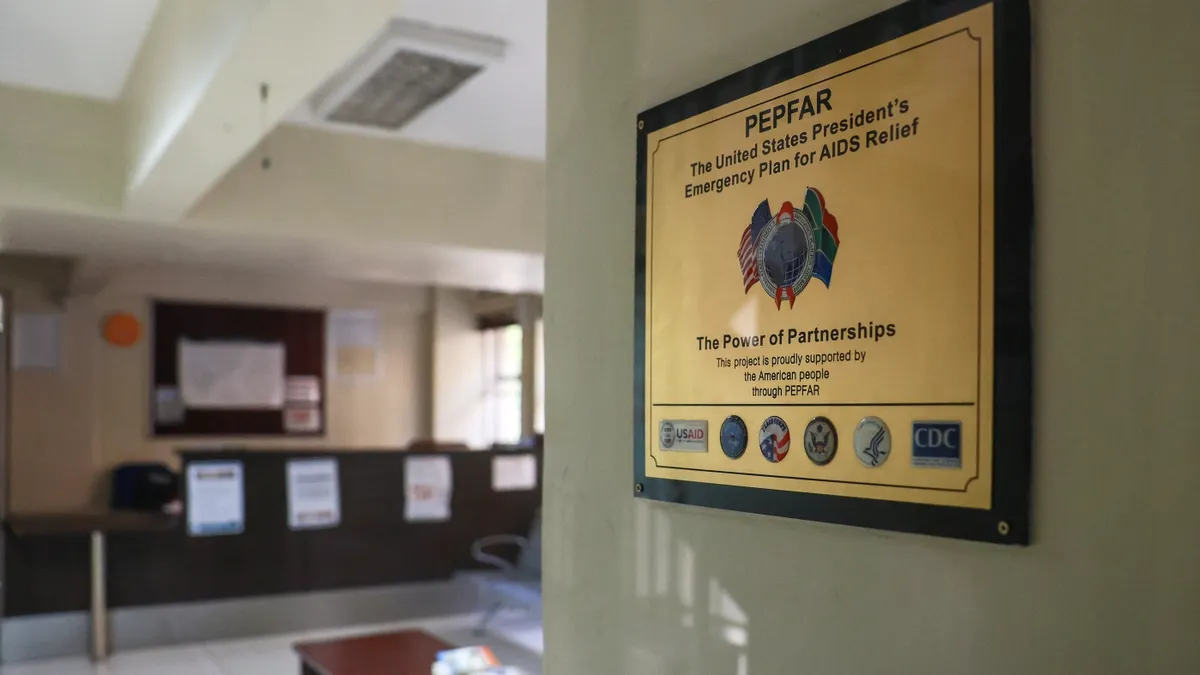
On Thursday, the United Nations Aids Agency (UNAIDS) issued a stark warning regarding the future of global efforts against HIV/AIDS. In its annual report released in Johannesburg, South Africa, UNAIDS highlighted significant funding cuts from major donors as a critical threat to decades of progress in combating this epidemic. These cuts, particularly the abrupt withdrawal of U.S. funding, could reverse the significant gains that have saved millions of lives over the past two decades.
Winnie Byanyima, the executive director of UNAIDS, emphasized the dire consequences of these funding reductions. "If the world doesn't plug this hole," she warned, "we estimate that an additional six million people will be newly infected over the next four years, leading to four million more AIDS-related deaths." This alarming forecast follows the Trump administration's decision to halt most funding for the President's Emergency Plan for AIDS Relief (PEPFAR), which has historically been the largest single contributor to the global HIV/AIDS response.
The sudden cessation of such a significant funding source poses a substantial risk to the progress made thus far, Byanyima stated during a press briefing. Since the onset of the epidemic, UNAIDS reports that approximately 26.9 million lives have been saved through treatment efforts, predominantly in sub-Saharan Africa, the region hardest hit by the virus.
South Africa, which boasts the largest population of individuals living with HIV globally, has made notable advancements in treatment accessibility. Currently, a majority of those infected have access to life-saving antiretroviral drugs. However, the ramifications of the funding cuts are already being felt across the nation. At the report launch, South Africa's Health Minister, Aaron Motsoaledi, labeled the U.S. funding cuts as a "wake-up call," stressing the dangers of relying too heavily on a single donor.
"This type of relationship, where we depend on one country, is perilous," Motsoaledi remarked, highlighting the risks associated with fluctuations in donor support. "When that country is in a negative mood, the whole world collapses—yes, it's scary."
South African researchers have been pivotal in achieving groundbreaking advancements in both HIV and COVID-19 studies. Nevertheless, many critical trials are being suspended due to the lack of funding. Dr. Helen Rees, the head of the Wits Reproductive Health and HIV Institute in Johannesburg, pointed out that the implications of these funding cuts are not limited to South Africa but are indeed global. "The research being conducted for HIV and tuberculosis in South Africa has had a tremendous global impact," she stated.
Despite being honored by the World Health Organization for her contributions to public health, Dr. Rees's institute is now facing significant funding reductions from U.S. sources.
President Trump has suggested that the shift away from U.S. aid reflects a new focus on trade rather than charity in Africa. However, Byanyima contends that the sudden withdrawal of U.S. support has resulted in UNAIDS facing nearly 50% less funding without adequate time to prepare for such a gap. "This is not charity," she asserted. "This is about solving a global problem together. As long as it festers in some parts of the world, it will inevitably return to affect everyone else."
For longtime HIV activist Nombeko Mpongo, residing in Cape Town, the funding cuts feel profoundly personal. "I remember feeling suffocated, as if I were being choked... It was as if a volcano erupted, taking everything away. It felt like a death penalty," she recounted. However, after grappling with the shock, Mpongo found renewed strength. "I realized—no way, nonsense. Let me fight. Let me reach out to the communities," she stated resolutely. "We've confronted this virus before. We'll do it again, because hope is what will carry us through."
As the world faces these challenges, the fight against HIV/AIDS continues, underscoring the need for collective action and sustained support to ensure that progress is not only maintained but advanced.